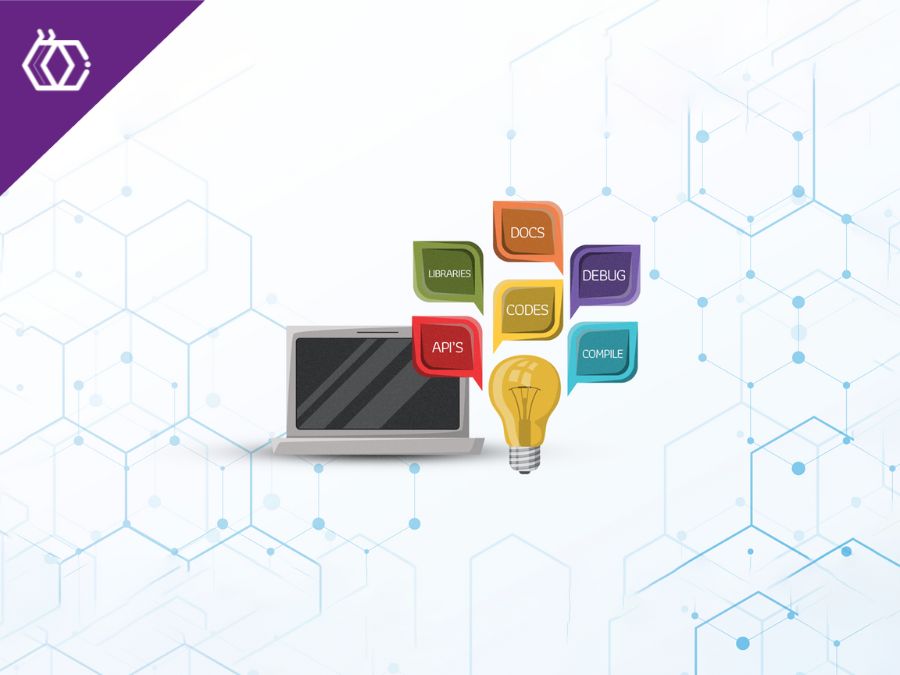

SDK
(7 minutes of reading) Programming has undoubtedly been the mainspring of the technological revolutions of recent decades. Increasingly, sophisticated solutions are developed to meet growing market demands. At the epicenter of this revolution, we find the SDK. For a programmer, mastering the SDK is like possessing a master key to create and innovate across platforms. WHAT IS AN SDK? The acronym SDK comes from "Software Development Kit". In a simple definition, it is a set of software tools that allow developers to create applications for a given system, be it an operating system, a specific hardware platform or specific systems such as games and databases. A typical SDK includes: A) Programming libraries B) Application Programming Interfaces (APIs) C) Integrated development environments (IDEs) D) Technical documentation E) Tutorials F) Code examples. WHY SDKs ARE ESSENTIAL FOR PROGRAMMERS? Below is a list of why you should use SDKs! Time Saving: The main purpose of an SDK is to provide tools and features that facilitate and accelerate software development. When using an SDK, programmers don't need to "reinvent the wheel" because much of the preliminary work has already been done. Consistency: SDKs are designed to be consistent and standard across a given platform or system. This ensures that applications are developed using a specific SDK function in a predictable and stable manner. Access to Advanced Features: Many SDKs offer access to advanced features such as augmented reality, machine learning or high-performance graphics capabilities, which would be complex to develop from scratch. TYPES OF SDKs The world of SDKs is vast and diverse. They can be classified into: Mobile Platforms: These are SDKs developed for mobile operating systems, such as the Android SDK or the iOS SDK. They contain the tools needed to create applications for smartphones and tablets. Gaming Platforms: SDKs like Unity or Unreal Engine allow programmers to develop high-quality games for different platforms. Virtual and Augmented Reality: SDKs like Apple's ARKit or Google's ARCore offer tools for creating immersive experiences. Cloud and Backend: AWS SDK, Google Cloud SDK and Azure SDK are examples of development kits that facilitate integration with cloud infrastructures. HOW TO CHOOSE THE RIGHT SDK? Before choosing the SDK, you must pay attention to the following: Compatibility: The chosen SDK must be compatible with the target platform. Community and Support: An active community and good support are vital as they can help resolve issues and queries. Documentation: A good SDK should come with complete and easy-to-understand documentation. Performance: The SDK must be optimized to provide the best possible performance. Frequent Updates: An SDK that is regularly updated ensures you are using the latest technologies and bug fixes. Reputation: The SDK's reputation in the market is an indicator of its reliability. Ease of use: The learning curve of the SDK must be considered to ensure that the team can adopt it without too many challenges. CHALLENGES ASSOCIATED WITH SDKs While SDKs offer numerous advantages, they also come with their challenges: Learning Curve: Some SDKs can be complex and require a significant learning period. Dependency: Using a specific SDK can make an application dependent on that technology. Conflicts: Sometimes integrating multiple SDKs into a project can lead to conflicts and incompatibilities. Security: A poorly designed or outdated SDK can have security holes. Performance: Poorly optimized SDKs can affect the performance of the final application. Limitations: Some SDKs may limit customization or expansion capabilities. KEY COMPONENTS OF AN SDK: The main components of an SDK are: Programming libraries: Precompiled sets of code that facilitate specific tasks, such as connecting to networks or writing to databases. APIs: Sets of rules and protocols that allow integration with other software or platforms. IDEs: These are digital workspaces where programmers can write, test and debug their code. For example, Android Studio is the official IDE for Android development. Technical documentation: Manuals and guides that explain how to correctly use the SDK. Tutorials and examples: Demonstrate how to implement specific functions using the SDK. CONCLUSION Mastery of SDKs is a fundamental skill for modern programmers. They facilitate and accelerate the development process, allowing programmers to focus on innovation and creating added value. Choosing the right SDK, understanding its capabilities and limitations, and knowing how to effectively integrate it into the development cycle is crucial to the success of any software project. SDKs play an invaluable role in the world of programming. They function as bridges between the creative imagination of developers and the realization of practical and innovative solutions. For programmers, whether beginner or veteran, understanding and mastering SDKs is crucial to staying relevant and productive in an ever-evolving technological environment. As technology advances, new SDKs will emerge, offering more tools and possibilities. Developers who embrace these tools and continue to learn and adapt not only improve their technical skill but also broaden their horizon of opportunities. In a world where innovation is key, SDKs are, and will continue to be, programmers' true allies.
Share this article on your social networks:
Rate this article:
[yasr_visitor_votes size=”medium”]



